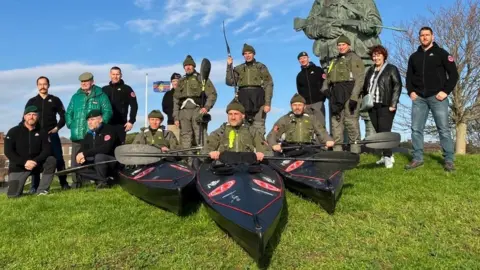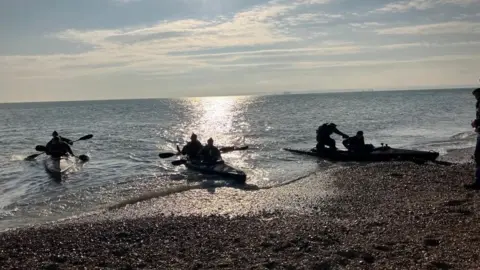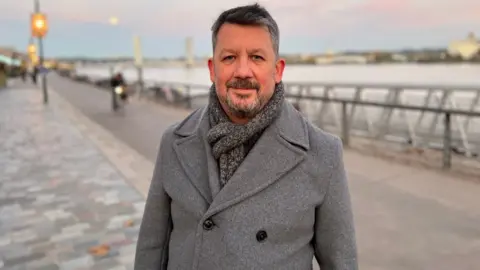Royal Marines recreate World War Two mission 80 years on
 BBC
BBCTen Royal Marines have recreated part of a gruelling World War Two mission to mark its 80th anniversary.
Operation Frankton saw ten British soldiers kayak through heavily-guarded waters to Bordeaux in France to plant mines on German ships at night.
Only two survived and Winston Churchill said the mission shortened the war by six months.
The marines have raised more than £25,000 for causes supporting veterans' mental health.
The commandos who undertook Operation Frankton started their mission on the French coast, and made their way up the Gironde estuary.
The recreated mission has been named Cockleshell 22, a reference to the limpet mines the original soldiers carried, and the 1955 fictionalised film about the operation, The Cockleshell Heroes.

One of the members of the team, former Royal Marine Tom Rendell from Bristol, described the conditions the original team would have faced.
"Sinking up to your waist in cotton kit and soaking feet that aren't going to dry out with a mixture of salt water and mud and then sleeping out in the reed beds in the day would have been a disgusting and depressing experience," he said.
Mike Heard's grandfather, Bill Sparks, was one of the two commandos who survived Operation Frankton and Mr Heard was in Bordeaux on Thursday for the anniversary.
"It's tremendous that the legacy of the original Cockleshell raid lives on.
"It's a great opportunity to showcase the original mission and raise money at the same time," he said.

Money raised will go to Help for Heroes, the Royal British Legion and the Royal Marines Charity.
Organiser Laurence Moore served in Afghanistan and Iraq and said the charities were close to his heart.
"I suffered from post-traumatic stress disorder and that ended my career quite early and I had quite a difficult transition into civilian life," he explained.
Mr Moore said he was happy "to give back" to some of the military charities which helped him.
The next phase of the recreation will see the team walk 100 miles "to freedom", just as Bill Sparks and the other survivor of the mission Herbert 'Blondie' Hasler did in 1942.

Follow BBC West on Facebook, Twitter and Instagram. Send your story ideas to: [email protected]
